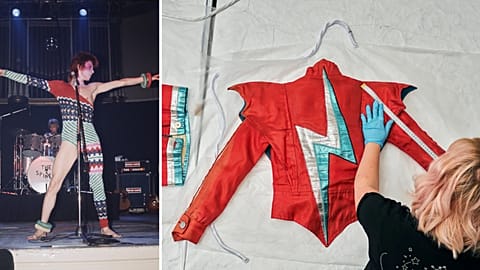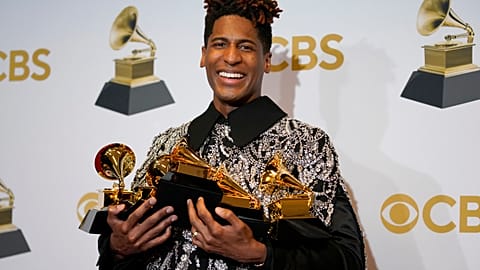One artist even sued himself. Sort of.
As Ed Sheeran battles it out in court, denying accusations from two songwriters who accuse him of plagiarism, Euronews takes a look at the biggest music copyright cases in history.
 ADVERTISEMENT
ADVERTISEMENT
 ADVERTISEMENT
ADVERTISEMENT
Queen and David Bowie v. Vanilla Ice
"Stop! Collaborate and Listen", says Texan-born rapper and actor Vanilla Ice at the top of his hugely successful track 'Ice, Ice, Baby' in 1990. He certainly listened but he didn't want to collaborate. Nor was it a 'brand new edition'.
The riff only differs from the Queen/Bowie 1981 track by a solitary note. The court ruled in favour of the earlier composition and both Queen and Bowie were added to the writing credits for the song.
The Rolling Stones v. The Verve
There was initially an agreement when The Verve used a sample of an orchestral version of The Rolling Stones' song 'The Last Time' for their track 'Bittersweet Symphony'.
But the older band claimed the younger group had gone rogue on the deal and used more than they had signed up for. The court ruled in favour of The Stones. But in a shock move in 2019, Jagger and Richards signed the rights back to Verve singer Richard Ashcroft.
"Mick Jagger and Keith Richards signed over all their publishing for Bitter Sweet Symphony," Ashcroft announced at the 2019 Ivo Novello awards. Describing the decision as "a truly kind and magnanimous thing for them to do."
Marvin Gaye v. Robin Thicke and Pharrell Williams
Big payout alert.
A jury decided that Robin Thicke and Pharell Williams’ hit single ‘Blurred Lines’ shared similarities to Marvin Gaye‘s 1977 hit ‘Got To Give It Up’.
The ruling saw the two contemporary artists liable for half of their track's royalties to be paid to Gaye’s family. If that wasn't enough, they were also hit with a massive damages payment of $5.3m (€4.85m).
Roy Orbison v. 2 Live Crew
This one is interesting not only for the claim but for the verdict and its implications for the legal definition of 'fair use'.
Acuff-Rose Music who hold the Orbison song's copyright sued 2 Live Crew and their record company, claiming that 2 Live Crew's song 'Pretty Woman' infringed Acuff-Rose's copyright in Roy Orbison's "Oh, Pretty Woman."
The District Court granted summary judgment for 2 Live Crew, holding that its song was a parody that made fair use of the original song.
The 2 Live Crew version used the full recording of the original song, but they rapped over it, changing the meaning and recapitulating the original into something amusing. Therefore the use is transformative, which is also seen as a form of criticism, which in turn qualifies it for Fair Use.
One is reminded here of Weird Al Yankovic, and fair use via parody is certainly a protection. However, Weird Al tends to ask the artists for permission to parody a track. And considering the volumes he sold in his pomp, he had a persuasive argument for shared royalties.
John Fogerty v. Himself
This is weirder than Al.
When John Fogerty was in the band Creedence Clearwater Revival, he wrote the song 'Run Through the Jungle.'
Later in his career, when he was no longer part of CCR he released a solo song called 'The Old Man Down the Road.'
Same songwriter. Both songs.
Saul Zaentz, who owned the rights to the earlier song due to the deal CCR signed with Fantasy Records, elected to sue Fogerty because his new song sounded a lot like something else he had written. Go figure.
In surely the most rockular method of forensic examination, Fogerty took out his guitar inside the courtroom and played the two tracks one after the other, highlighting in the clearest way possible the elements that make each song unique.
He won.

















